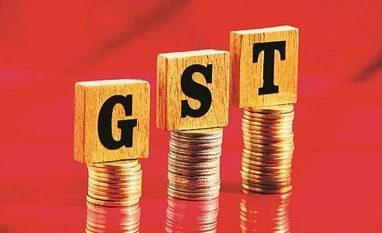In what appears to be a relief for the states, the Centre has said it will borrow up to Rs 1.1 trillion, which is the estimated revenue shortfall on account of implementing goods and services tax (GST), and lend the states under the special window. The extra fund raising was reflected in the borrowing calendar released by the RBI and the finance ministry. As much as Rs 55,000 crore each would be borrowed through securities of three-year and five-year tenors As such, the borrowing will rise to Rs 4.88 trillion from October 19 to March 31 in the current financial year.
This may come as a victory of sorts for opposition-ruled states, including Punjab, West Bengal, and Chhattisgarh, which have insisted that the Centre should do the borrowing because it is administratively easier and it can be at a low rate of interest.
“Under the special window, the estimated shortfall of Rs 1.1 lakh crore (assuming all the States join) will be borrowed by the Government of India in appropriate tranches. The amount so borrowed will be passed on to the states as a back-to-back loan in lieu of GST compensation cess releases,” the finance ministry said in a note on Thursday.
The clarification comes four days after the GST Council meeting ended in an impasse over the compensation mechanism and the dissenting states have been exploring legal options, including going to the Supreme Court.
The ministry said it would not have any impact on the fiscal deficit of the Centre and the amounts will be shown as capital receipts of the state governments and as part of financing their respective fiscal deficits.
“This will avoid differential rates of interest that individual states may be charged for their respective SDLs (state development loans) and will be an administratively easier arrangement,” it said.
While this will not reflect in the Central government’s borrowing, it will show up in the states’ debt. But the finance ministry said: “The states that get the benefit from the special window are likely to borrow a considerably lower amount from the additional borrowing facility of 2 per cent of GSDP (from 3 per cent to 5 per cent) under the Aatma Nirbhar Package.”
While the Centre had not spelt out the details of the special window, the states have inferred from this that each will have to borrow separately. They were promised full compensation by the Centre for the first five years of GST implementation.
Kerala finance minister Thomas Isaac tweeted," I welcome the new announcement that the Centre will borrow through a special window and provide back to back loans to states in lieu of compensation."
But there is one issue yet to be resolved -- how much of compensation is to be deferred till 2023, he said, asking the Centre to negotiate this point and reach a consensus.
He also wanted full Rs 2.3 lakh crore for states to meet the compensation gap and wondered why should not the Centre borrow more money since it said that it does not affect its fiscal deficit.
Former finance minister and Congress leader P Chidambaram tweeted on Thursday: “If the Centre has decided to borrow the Rs 1.1 lakh crore and extend it to the states as a back-to-loans, I welcome the change of position. I thank all the economists, academics and newspaper editors who had supported our position.”
However, a senior finance ministry official said: “It is the Centre that is facilitating the states’ borrowing. This helps the states ... the yield may be lower.”
Despite a lack of consensus on the issue in the Council meeting, the finance ministry initiated the borrowing process for 21 states that had picked the option of borrowing up to Rs 1.1 trillion. Under this option, the principal and interest will be repaid via compensation cess, which has now been extended beyond June 2022.
Jayanta Roy, senior vice-president and group head of ICRA Ratings, said this step would reduce the supply of state bonds in the second half of FY21, from the level that was earlier being anticipated.
“The cost of such borrowing would go down. In conjunction with the plan to conduct open market operations in SDLs, announced by the Reserve Bank of India, such measures should help ease SDL spread,” he said.
Punjab Finance Minister Manpreet Singh Badal wrote Union Finance Minister Nirmala Sitharaman in August, saying many members (of the GST Council) had stated borrowing by the states might be costlier by 50-150 basis points.
West Bengal Chief Minister Mamata Banerjee, in her letter to Prime minister Narendra Modi, had urged the Centre to do the borrowing.
(With inputs from Anup Roy)
Unlock 30+ premium stories daily hand-picked by our editors, across devices on browser and app.
Pick your 5 favourite companies, get a daily email with all news updates on them.
Full access to our intuitive epaper - clip, save, share articles from any device; newspaper archives from 2006.
Preferential invites to Business Standard events.
Curated newsletters on markets, personal finance, policy & politics, start-ups, technology, and more.
)